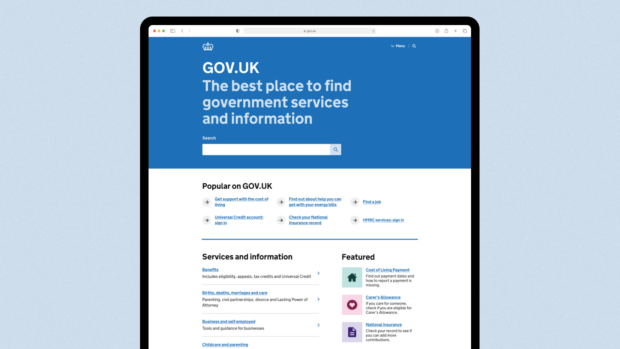Now is the time for government to confront a tricky and long-standing issue, according to Eleonora Harwich of Reform
Credit: Ayebare Innocent/CC BY-SA 4.0
During a crisis, information is king.
As any military leader will testify, accurate information enables you to take the right decision at the right time. However, the pandemic revealed big differences in the preparedness and ability of government departments and public sector organisations to harness the power of data and technology.
The NHS is sitting on a treasure trove of data, but it often struggles to unleash its value. This is because data can go unused or often be of poor quality. The pandemic revealed yet another fundamental data-related issue: much of the information held at central level is about process targets and not data that enable key operational decisions to be made. Information about essential resources was unknown; from the number and location of available ventilators and beds, to how many people were in care homes.
The NHS went into the pandemic by handling “information in spreadsheets held by disparate organisations” – and this could cost lives. Almost two weeks after the start of the first lockdown, the NHS still did not have a single place to analyse multiple data sources to understand the spread of the virus and enable key operational decision-making.
Senior leaders within the NHS needed to act fast with private sector partners to build a data platform that would “provide those national organisations responsible for coordinating the response with secure, reliable and timely data”. Without having the right digital tools and processes in place, performing basic tasks can lead to monumental failures as shown by Excel-gate, last October, which saw 16,000 coronaviruses go ‘missing’.
Related content
- HMRC and Home Office the big winners as spending review commits £600m to ‘fix outdated government IT’
- Why the NHS needs to ‘take the lead’ on sharing data with the private sector
- Can the GDS innovation strategy deliver a lasting legacy for government?
There have, of course, also been success stories during this pandemic where the rapid use of technology in healthcare has aided the fight against Covid-19. From remote consultation and monitoring of patients, to the development of the National Covid-19 Chest Imaging Dataset to support a better understanding of the virus and develop technologies to help patients with a severe infection.
However, in contrast to healthcare, other parts of the public sector were better prepared to rapidly respond to the crisis. HMRC stood up the entirely new furlough scheme in a matter of weeks, processing almost 10 million claims to date.
The Department of Work and Pensions faced a huge surge in demand as the economy ground to a halt. Universal Credit claims hit 2.9 million which was almost double the number of total claims before the pandemic.
DWP successfully managed to cope with this sharp increase in demand because of the digital transformation journey in had been on since 2012. Its cloud-based digital infrastructure allowed it to easily ramp up services, and teams within DWP were used to more agile ways of working.
The culture shift and empowered teams which came as a result of this digital transformation are what – according to Lara Sampson, Universal Credit Product Director at DWP – really made the difference in this time of crisis.
The pandemic has shone a bright light on the importance of having the right infrastructure and ways of working in place to make the most of data and technology. However, what the past 25 years of digital transformation have shown is that there has often been a tendency to shy away from dealing with some difficult and ‘unsexy’ issues like legacy IT.
An inflection point?
Currently, about 45% of IT spend in the public sector is spent on legacy IT. Whilst not all legacy IT is problematic, some of it can create security issues, hinder value for money and create barriers to the better use of data in the public sector. Data, particularly in healthcare, can often be trapped in clunky and old proprietary systems – which go against much of the government’s current guidance on good tech practices in the public sector.
New research from Reform think tank proposes three key ideas for government to capitalise on the lessons from the pandemic and move forward with the digital agenda.
First, government can no longer afford to shy away from tackling legacy IT in the public sector.
There needs to be a robust cross-government digital skills strategy – including greater flexibility to pay more for technical skills
As Paul Maltby, chief digital officer at the Ministry of Housing, Communities and Local Government highlighted in an event launching this new research, legacy IT has put big brakes on governments’ digital transformation plans. We urge the government to explore innovative funding solutions to enable this transition, like a legacy IT fund.
Secondly, government needs to re-examine its spending strategies around technologies, which are currently not very amenable to pay-per-use technologies and still rest on the old assumption that digital transformation is about physical IT infrastructure.
Finally, there needs to be a robust cross-government digital skills strategy – including greater flexibility to pay more for technical skills.
This pandemic must be an inflection point for ministers. We cannot afford to ignore the lesson that sound digital infrastructure is fundamental not just to delivering better public services, but to ensuring their resilience during crises. Now is the time to deal with the hard problems and get the basics right.
Click here to read Reform’s Digital Public Services report



